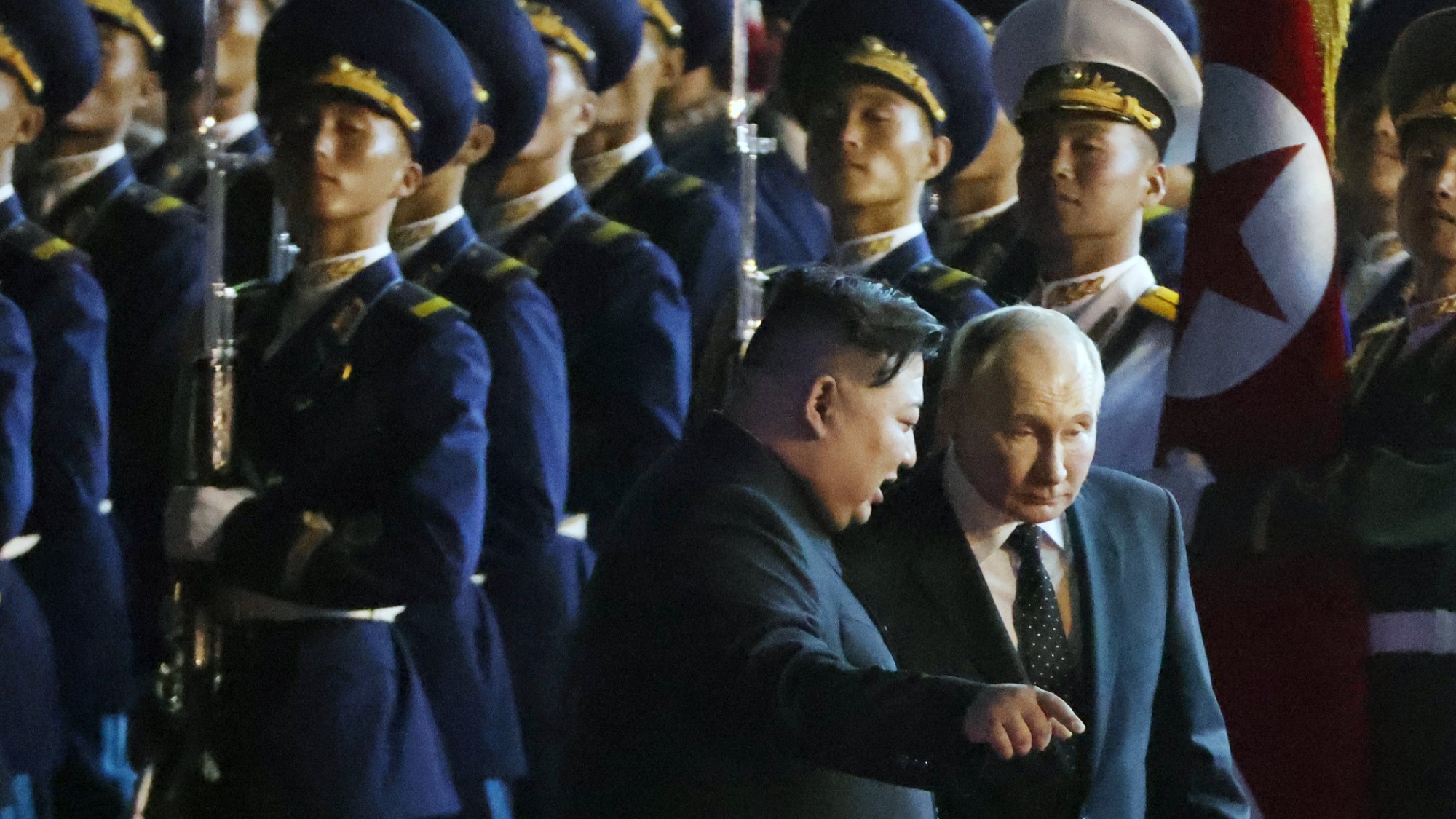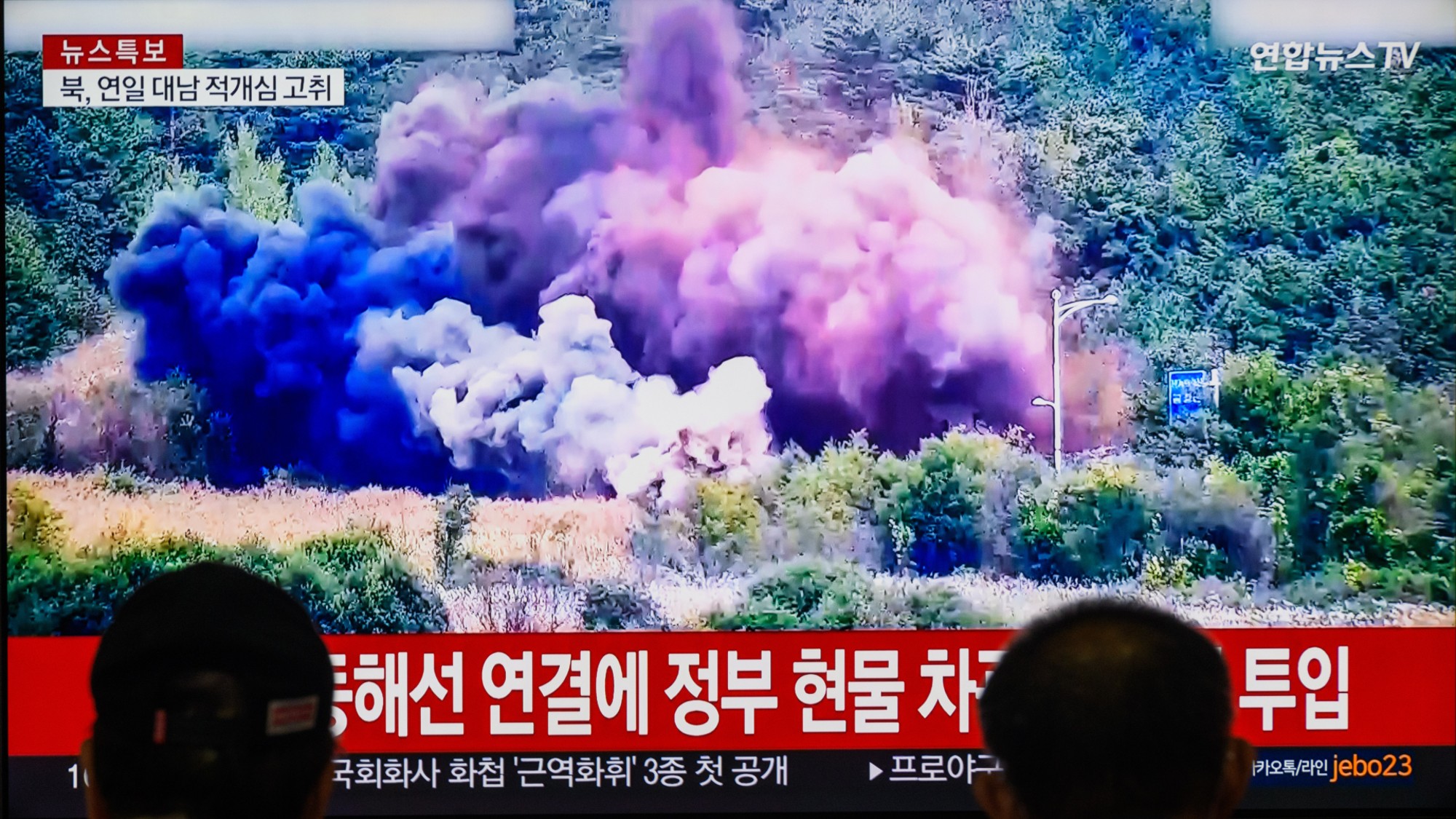Malaysia accuses North Korea of 'holding our citizens hostage,' bars North Koreans from leaving


The showdown between erstwhile allies Malaysia and North Korea over the public murder of Kim Jong Nam, the estranged older half-brother of North Korean leader Kim Jong Un, flared up again Tuesday when Pyongyang announced that "all Malaysian nationals in the DPRK [Democratic People's Republic of Korea] will be temporarily prohibited from leaving the country until the incident that happened in Malaysia is properly solved." North Korea rejects Malaysia's conclusion that Kim Jong Nam was killed by VX nerve agent at the Kuala Lumpur airport.
Malaysian Prime Minister Najib Razak reacted to North Korea barring Malaysians from leaving the country by instructing police "to prevent all North Korean citizens in Malaysia from leaving the country until we are assured of the safety and security of all Malaysians in North Korea." Pyongyang is "effectively holding our citizens hostage," he said, calling it an "abhorrent act" in "total disregard of all international law and diplomatic norms." Malaysia says 11 of its citizens are in North Korea, mostly connected to the embassy, while there are an estimated 1,000 North Koreans in Malaysia, largely students and workers.
Malaysia has arrested only two people for Kim's murder — the Vietnamese and Indonesian women seen rubbing the potent nerve agent on Kim's face — and it has surrounded the North Korean embassy until it can interview three North Koreans believed to be hiding inside, among the eight North Koreans Malaysian police have tied to the murder; four of the suspects left Malaysia immediately after the killing.
The Week
Escape your echo chamber. Get the facts behind the news, plus analysis from multiple perspectives.

Sign up for The Week's Free Newsletters
From our morning news briefing to a weekly Good News Newsletter, get the best of The Week delivered directly to your inbox.
From our morning news briefing to a weekly Good News Newsletter, get the best of The Week delivered directly to your inbox.
The two countries expelled each other's ambassadors over the weekend, after the North Korean envoy criticized Malaysia's handling of the investigation. "You'd have to go back a long way for this kind of wholesale diplomatic meltdown," Euan Graham, director of International Security at the Lowy Institute in Sydney, tells Reuters. He called it "a classic own goal of North Korea's making," triggered "by the most outrageous public murder than you can imagine, using a chemical weapon in a crowded international airport."
A free daily email with the biggest news stories of the day – and the best features from TheWeek.com
Peter has worked as a news and culture writer and editor at The Week since the site's launch in 2008. He covers politics, world affairs, religion and cultural currents. His journalism career began as a copy editor at a financial newswire and has included editorial positions at The New York Times Magazine, Facts on File, and Oregon State University.
-
 Prickly pear juice recipe
Prickly pear juice recipeThe Week Recommends Jewel-toned, natural juice is a thirst-quenching treat
-
 The truth about vitamin supplements
The truth about vitamin supplementsThe Explainer UK industry worth £559 million but scientific evidence of health benefits is ‘complicated’
-
 Is convenience culture killing community?
Is convenience culture killing community?In The Spotlight A decline in emotional intelligence could be responsible for a diminished sense of belonging
-
 Did Trump just end the US-Europe alliance?
Did Trump just end the US-Europe alliance?Today's Big Question New US national security policy drops ‘grenade’ on Europe and should serve as ‘the mother of all wake-up calls’
-
 The North Korean troops readying for deployment in Ukraine
The North Korean troops readying for deployment in UkraineThe Explainer Third country wading into conflict would be 'the first step to a world war' Volodymyr Zelenskyy has warned
-
 What's happening at the North Korea border?
What's happening at the North Korea border?The Explainer Tensions rise as hermit kingdom blows up 'symbolic' roads after accusing Seoul of flying drones over Pyongyang
-
 How would we know if World War Three had started?
How would we know if World War Three had started?In depth Most of us probably won’t realise that we are in a global conflict – at first
-
 British warship repels 'largest Houthi attack to date' in the Red Sea
British warship repels 'largest Houthi attack to date' in the Red SeaSpeed read Western allies warn of military response to Iranian-backed Yemeni rebels if attacks on ships continue
-
 Houthi rebels claim Red Sea ship attacks
Houthi rebels claim Red Sea ship attacksspeed read Iran-backed Yemeni group vows to escalate aggression towards Israel-linked vessels in revenge for Gaza war
-
 Israel plans next phase of Gaza war as first hostages released
Israel plans next phase of Gaza war as first hostages releasedSpeed read After four-day ceasefire 'we will not stop' until destruction of Hamas, says Israel
-
 Mob storms Russian airport 'looking for Jews'
Mob storms Russian airport 'looking for Jews'Speed Read Plane from Israel surrounded by rioters chanting antisemitic slogans after landing in Russia's Dagestan region
